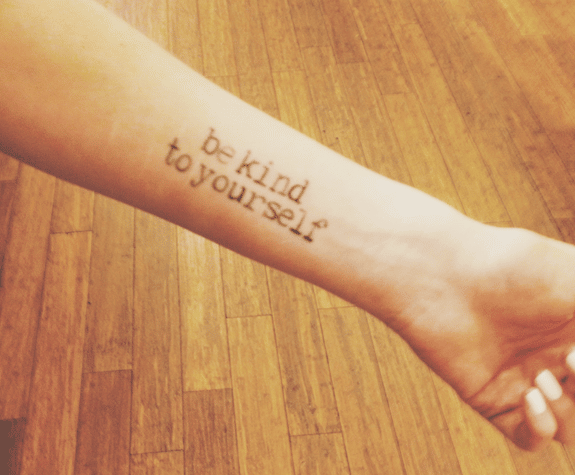Compassion is the highest form of Intelligence.
The old proverb above is what I firmly believe this to be true. To have compassion for another, it must begin with ourselves first. The secret to empowered action is learning not to beat ourselves up.
We live in a society that regularly sends messages to strive for more, work harder and be the best. However, how many of us consider whether these goals are what we want? And for what reasons? Will the reasons bring us lasting happiness? In setting ourselves up to such high and often unattainable standards, harsh self-criticism follows. When this form of self-sabotage happens, our sympathetic nervous system (the fight-or-flight response) is activated and elevates stress hormones like cortisol in the bloodstream. On the other hand, self-compassion may trigger the mammalian caregiving hormone of affiliation and love, such as oxytocin. With a dose of self-compassion, we can begin to view these messages with greater calm and understand them as opportunities from which growth can follow.
So why is this so difficult for people to do? According to Kelly McGonigal, a health psychologist and lecturer at Stanford University, “Our brains are wired to be critical of ourselves and compassionate towards others because there’s an instinctive drive to seek acceptance from a group. The trick is learning to turn our natural compassion inward and outward.” Understanding this to be a natural human instinct can make the practice of being kind to yourself easier.
When we are in a state of self-compassion, self-criticism, feelings of isolation, or shame naturally go down. So beginning a process of being kind to yourself can start. To begin the process of transforming harsh inner voices into more caring, self-supportive words, try these three ways to form a more thoughtful approach.
Self-compassion gives me permission to breathe my own humanity into each situation that arises and greets me, and to transmit that energy into kindness to others.
Recognize that we are not the only ones having this experience. When we bring this to light and embrace the parts of us that we may label as negative, not good, bad – like how we might speak to ourselves, for example – suddenly, we’re in a partnership. In recognizing harsh self-criticism, we find that parts of us need compassion, love, and attention. As a result, we can begin to cultivate more kindness towards ourselves with a practice that can help us live to our highest potential.
3 Ways to Cultivate Self-Compassion:
1. Mindfulness
- Pay attention to our inner dialogue with kindness.
2. Kindness towards yourself
- Cultivate inner voices that are more loving.
3. Shared humanity
- Recognize that we are not the only one having this experience.



